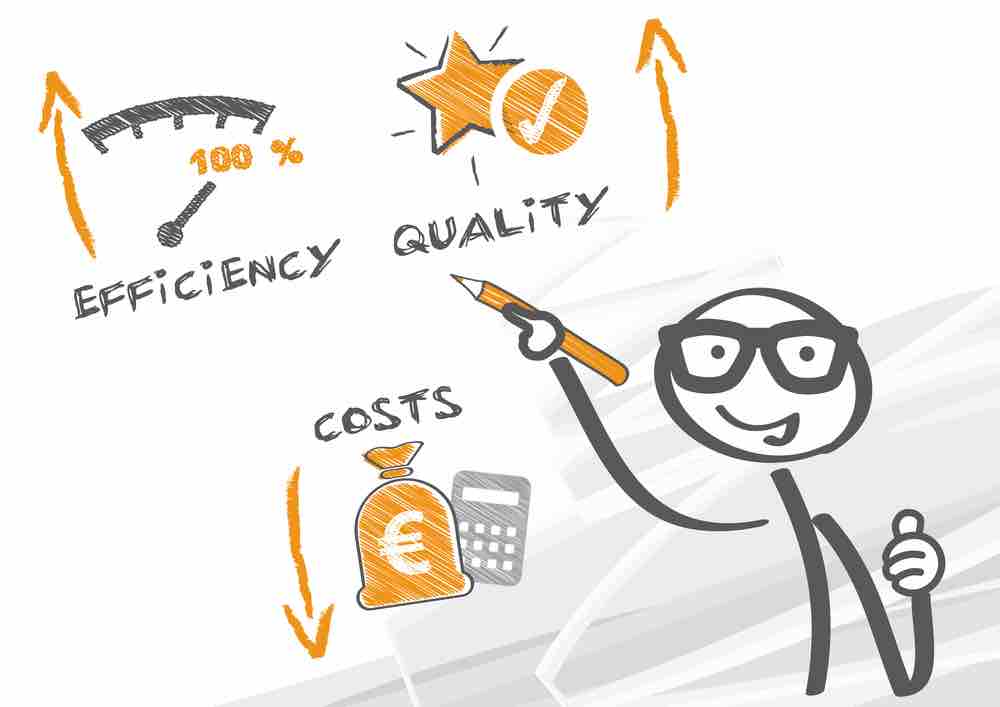To become a life coach with real potential, we need to look beyond what the typical life coach training offers and understand what it really takes to succeed in this fast-paced industry. Times have changed. Successful life coaches are adapting to this new, digital world of opportunity.
Being an in-demand life coach is still straightforward but many don’t understand that, given the surge in popularity, becoming a life coach requires a degree of specialization that organizes your life coaching persona and skill – and speaks to the right people who are ready to hire you.
Many life coaching institutes get this wrong, so regardless of where you train, take this report with you. You’ll likely refer to it again and again as you build your dream of a successful coaching lifestyle.
Before we get into it, let’s mention a couple of conditions. We assume two things for most people who want to become a life coach:
- You want to build your own, independent life coaching business and do not plan to get a job at an organization that hires coaches.
- You’ll engage in online marketing efforts, which is a prerequisite for any business today, even if you want to open a traditional, in-person coaching practice.
Now let’s get to the point.
Here are the six new requirements to become a life coach with unlimited potential.
There may be plenty of additional factors and nice-to-have add-ons to this list but there’s something special about the following six items. This is a list of the indispensables. To enjoy lasting success as a coach, you need every single one.
1. To Become a Life Coach, your Personality Must Fit

Almost anyone can become a life coach but it is critical to know ahead of time whether or not the day-to-day work of a coach suits you before you enroll in life coach training.
What is the X-Factor?
People with the X-Factor tell me one thing, over and over. They’ve been casually life coaching others for years! Something about their personality (the X-Factor) attracts people to them. Others confide in them, ask for advice, and sometimes even suggest life coaching as an obvious career choice.
Knowing how much they love making a difference through simple conversations, X-Factor people are often surprised by the prospect of charging for it. Being in the role of coach comes naturally to them, so making a nice living doing it if often a wake-up call.
Do you have the X-Factor?
Only you can decide. Reflect on your own experience. If you’re willing to admit that you’re often seen as one whom others tend to trust on a personal level, you may have found your calling in life coaching. If it is fulfilling to you when your words affect other people in positive ways, you’ll love the business of coaching. It makes a huge difference in people’s lives and that’s what it’s all about! If this is you, then you should become a life coach! (But don’t overlook the points below.)
2. World-Class Life Coach Training

I don’t need to tell you that the training you get to become a life coach needs to be exceptional. When you merge your X-Factor personality with the best training available, you’ll create a powerful combination that gives the necessary structure and direction to your natural gifts. This is what keeps clients coming back for more.
Not every person has the X-Factor and not every training is exceptional. In fact, you’re probably going to recoil in disbelief when I tell you the number one thing to be sure of when enrolling in an average training.
Make sure the course actually teaches you how to coach.
I’m not kidding. There are thousands of life coach certification offerings in the world today. If you just enroll in one that looks good at first blush, forget about exceptional. Let’s just hope you learn how to coach. This speaks to a dirty little secret in the coaching industry. It goes something like this:
Many life coach programs teach you about coaching, not how to become a life coach with skills that apply in the real world.
In the average accredited training, you’ll learn concepts (often connected to the International Coach Federation core competencies). You’ll attend in-person or online classes and do independent study, but when it comes to practical skills, you could leave that training not even realizing you were short-changed.
You may never end up charging for your service because, strangely, you don’t feel qualified. If you don’t have applicable coaching skills and step-by-step protocols in your tool kit, indeed you will not be qualified. It wasn’t you. It was the inadequate training you received.
3. A Professional Life Coaching Offer that Clients Find Hard to Resist

Here’s the insider secret that you won’t hear often but that successful coaches understand.
Life coaching is not a traditional service offering. Selling it can be challenging because most people who would benefit from life coaching don’t know it. They’ve never experienced coaching. How can they know when to call a life coach if they don’t understand what a coach does?
Life coaching has gone mainstream but hasn’t been branded over generations. Who grew up with parents who regularly hired life coaches and taught their children the immense benefits of being coached?
The result is that most people know about life coaching but don’t know when to call a coach.
People know when to go to the doctor. They know when to call a plumber. Doctors, plumbers, and other service professions are branded over generations. By the time we make adult decisions to call a doctor or plumber, we’ve learned through experience when we need them.
This is precisely why many coaches fail to get lots of clients. They’re trying to sell life coaching as if it were a traditional service!
Surprisingly, life coaching is still relatively easy to sell. You just need to tell people when to call. To promote life coaching services successfully, you must assume that the words life coaching mean nothing to your potential clients. Then, focus your message on solutions to specific problems.
So how do we apply this knowledge to create an offer that is hard to resist? Compare the following examples of two coaches who want to help people discover their purpose in life.
Coach Y creates an offer that looks something like this:
Life Coaching
- ICF Accredited
- Individual and group coaching
- Meet online or in-person
- Sliding scale fees
If you want to discover your purpose and enjoy an authentic, fulfilling life, call for a free consultation!
Coach X creates an offer that looks something like this:
Life Coaching
I help people discover their purpose in life. My clients typically experience some or all of the following when they decide to hire me. Do any of the following challenges apply to you?
You…
- Feel like your life is a treadmill. You meet your daily obligations with a subtle sense of reluctance because they aren’t inherently fulfilling.
- Feel a little lost as to what to do with your life.
- Don’t have meaningful goals to act upon day-by-day.
- Feel trapped. You may have a dream but you’ve also got obligations and don’t know how to accomplish your goals without abandoning your current responsibilities. And there you are, with ideas for a better life that seem like so much fantasy.
- Wonder if this is all life has to offer. You’ve been working hard for some time but still aren’t happy. You crave a more meaningful existence.
- Feel like you’re living out someone else’s idea of your best life.
- Harbor persistent thoughts that if you were to break free and go for what you really want, you’d fail miserably.
- Believe at some level that you don’t deserve to get what you really want. You may even hear an inner critic telling you something like, “Who do you think you are, anyway?”
If some or all of the above sounds familiar, call me. Let’s talk about how life purpose coaching can help you systematically resolve the above issues once and for all, freeing you to pursue your dreams. Addressing these very real challenges is the reason I became a coach, to help others find their path, just as I’ve found mine.
Which life coach would you call Y or X?
Granted, the Life Coach Y example is short on verbiage compared to Coach X but that’s the point. Most life coaches are not trained in how to craft an offer that really connects with the people who need it.
Now let’s imagine a tragic scenario. Assume Coach Y is a more effective coach than Coach X. No one is going to call Coach Y because Coach Y, albeit a more skilled coach, doesn’t know how to attract clients.
You need potential clients to read a description of your life coaching service and think: Wow, this coach just described my life! These are the people who will call. To get inquiries and paying clients, you must connect with them where they are, helping them put words to their experience. Only then will your coaching service become relevant to the right people.
The solution to the generational branding issue is easy: Tell people when to call!
4. A Simple Life Coaching Website that Converts 1% of Visitors

Don’t worry about building a website until you’ve got an offer that people find hard to resist. The best website in the world, with all the bells and whistles, will yield zero clients if the content doesn’t connect with the right people.
When you’ve got your messaging down, build a simple, professional website. Include the basics, a Welcome page, About page, Services page, Blog, Newsletter registration, and so on. Give people something for free if they sign up for your newsletter.
None of this is difficult to do. If you don’t have web skills, hire an inexpensive designer to put up a site. Getting the job done is fast and easy, so don’t buy into grand sales pitches from agencies who charge a premium and take weeks to get the job done.
To become a life coach with clients, you don’t need a ton of traffic or a massive conversion rate. Again, you just need to connect with the right people through the right message. Traffic will turn into people who inquire. When you get one good lead for every hundred visitors, you’re on your way to a fat living as a coach. Leads turn into clients and clients tend to stick around, hiring, and rehiring you over a period of time.
5. Small-Scale Outreach to the Right People

If you become a life coach, your work may reach millions of people per year. We hope so. The world needs it. But the reality is that you only need to reach hundreds. And only a tiny fraction of those hundreds needs to hire you. It’s not difficult to achieve.
Once again, we return to your message that connects with the right people. Put it out there. Write a blog, be a guest on a podcast, post to social media, use cheap PPC ads. You don’t need droves of traffic and, best of all, putting your message out there is fun!
With your message refined, website and up and running, and coaching skills ready, start telling people about it!
6. Staying Power

Time for a reality check. As relatively simple and straightforward as all this seems, you know how life can be, right? Sometimes we get surprised.
You’re on a learning curve. You need staying power until you’ve got this down and you are established in your new career. I’ve personally built a successful coaching practice on three separate occasions in life, dating back to the mid-1990’s. I know the drill, so I’m often asked how long it takes to succeed.
The only answer that will both protect you and ensure your success is: As long as it takes. How committed are you? Are you one of those people who buy into the Six Figures in 60 Days hype?
Don’t laugh. I personally know people who quit jobs before they even began their life coach certification course because they believed some lie they were told by an unscrupulous life coaching program. Crash and burn. It’s not pretty. Don’t do that. Why compromise your dream?
Why not be prepared to give your dream business as long as it takes to succeed? Otherwise, the logic goes something like this:
I’ll commit to my dream to become a life coach as long as it happens in the next 60 days.
We can agree the above isn’t a commitment, right? It’s an immature demand.
Your coaching business will succeed if you learn how to do it right. Still, you can’t predict every eventuality. What if it takes a year to become profitable? What if it takes two? Don’t take a leap of faith. Put one foot in front of the other until you get there, even if it means staying in your crappy job longer than you want and burning the midnight oil every once in a while.
If you’re not willing to plan for success and protect yourself along the way, don’t even begin. Now, there are people who can make six figures in 60 days. I could. But I’ve got a large following of people who’ve been studying my content for years. I’ve built my own platform, based on the ideas in this report. All I need to do is put out an offer to my mailing list and I’ll have tons of coaching inquiries today.
If you’re in this fortunate position as well, then you can disregard all of this. But if you’re just starting out, you won’t be flooded with inquiries today. That will take some time. You need to focus on getting the right training and experienced people on your side who know the coaching industry. They need to be committed to your success as well.
Then, make a goal to get just one client. One. Put a deadline on the goal and begin to promote your message to a few people in your current circles. Then, do it again to get your second client. Keep going. In time, you’ll have an authoritative coaching platform and be considered a thought leader in certain circles.
Getting clients won’t be a problem. You’ll be faced with bigger problems like how to scale your business and make the best use of your time while not losing focus on your core mission.
Bottom Line: If you’re going to become a life coach, do it right.
Starting a business that changes lives and provides a sustainable income is the most worthwhile career opportunity imaginable. If you’ve never done it before, then you’ll need access to training and expertise you can trust.
The rewards infinitely outweigh the challenges. With the right planning and commitment, the dream to become a life coach can become your reality.


